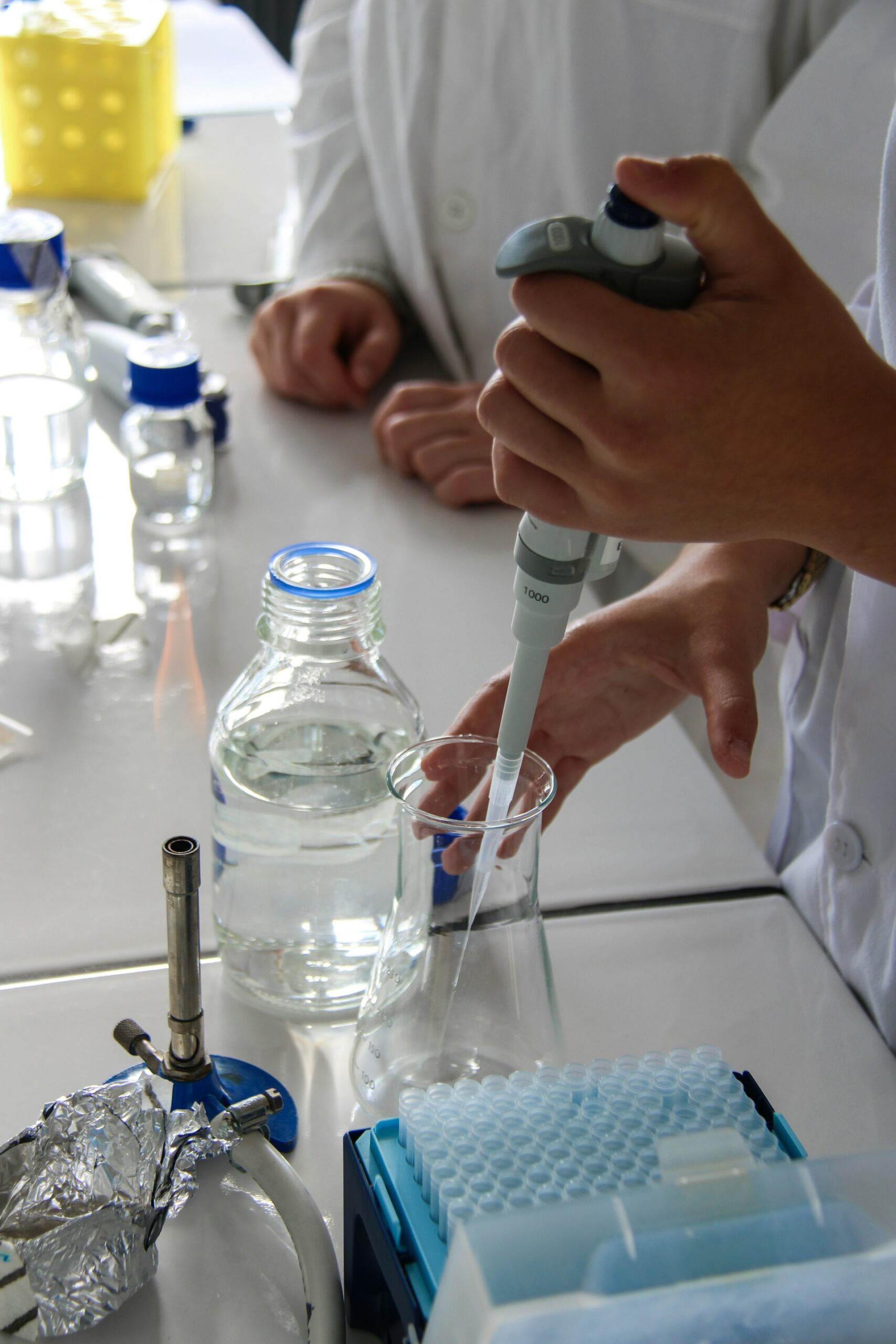Unlocking Progress: How Applied Science Transforms Real-World Challenges Into Solutions

Photo by Nathan Rimoux on Unsplash
Introduction
Applied science is a dynamic field that bridges the gap between theory and practice. By leveraging scientific principles to address real-world problems, applied science drives innovation across industries such as healthcare, engineering, environmental management, and technology. Understanding its foundational concepts and practical benefits can help individuals chart rewarding educational and career paths while contributing to society’s advancement.
What Is Applied Science?
Applied science refers to the use of scientific knowledge and methodologies to solve practical problems and improve processes in daily life. Unlike pure science, which seeks to expand knowledge for its own sake, applied science is focused on tangible outcomes and real-world applications. This field encompasses a wide range of disciplines, including engineering, medical research, environmental science, and biotechnology [1] , [2] .
Applied Science vs. Pure Science
Understanding the distinction between applied and pure science is essential. Pure science-sometimes called basic science-focuses on developing new theories and understanding fundamental mechanisms in nature. For example, researchers studying quantum mechanics or genetics might not have an immediate application in mind, but their discoveries can later inform practical advances. Applied science, on the other hand, takes these theories and puts them to use, aiming to solve specific challenges or improve existing technologies [3] , [4] .
For instance, an engineer may apply physics principles to design safer bridges, while a medical researcher uses knowledge of biology to develop new treatments. Both rely on pure scientific discoveries, but their work is oriented toward usability and improvement of human life.
Major Fields of Applied Science
Applied science is a broad umbrella, covering many specialized areas. Some of the most prominent include:
- Engineering: Applies physics, chemistry, and mathematics to design and construct machines, buildings, and infrastructure. Civil, mechanical, electrical, and chemical engineering are vital subfields.
- Medical Sciences: Utilizes biological and chemical principles to develop new healthcare treatments, diagnostics, and medical devices.
- Environmental Science: Applies scientific research to address issues like pollution, resource management, and ecosystem restoration.
- Biotechnology: Uses biological systems and organisms to create products and technologies that benefit sectors like agriculture, medicine, and manufacturing.
- Computer Science: Translates mathematical and logical principles into software, hardware, and systems that power modern technology.
Each field requires a different combination of scientific understanding and practical skills, but all share the goal of transforming knowledge into tangible results [1] , [4] .
Real-World Examples and Case Studies
Applied science has led to some of the most transformative advancements in society. For example:

Photo by National Cancer Institute on Unsplash
- Medical Treatments: The development of vaccines, antibiotics, and imaging technology relies on applying biological and chemical research to patient care [3] .
- Renewable Energy: Scientists use applied research to improve solar panels and wind turbines, making sustainable energy more accessible and affordable.
- Agricultural Innovation: Advances in crop breeding, pest control, and soil management help farmers boost yields and maintain food security.
- Environmental Protection: Applied science informs water purification systems, waste management strategies, and environmental impact assessments.
- Materials Engineering: The creation of stronger, lighter, and more durable materials supports industries from aerospace to consumer electronics.
In each case, applied science transforms theoretical ideas into products and solutions that directly improve quality of life [2] , [3] .
Career Paths in Applied Science
Pursuing a career in applied science opens diverse opportunities. Professionals can work in research and development, healthcare, engineering, environmental consulting, information technology, and manufacturing, among others. Many of these roles require specialized education, such as a bachelor’s or master’s degree in a relevant field.
To explore available roles, consider using job search platforms or contacting local universities and technical colleges for program details. It is advisable to research specific industries of interest and consult with academic advisors to identify the most suitable educational pathway [1] , [4] .
Steps to Pursue Education in Applied Science
Individuals interested in applied science can follow these general steps to start their journey:
- Explore Specializations: Research the range of applied science fields to determine which aligns with your interests and career goals. Consider fields like engineering, healthcare, environmental science, or technology.
- Find Accredited Programs: Search for accredited colleges, universities, or technical schools offering degrees in your chosen specialty. Look for programs recognized by industry or professional associations.
- Meet Prerequisites: Most applied science degrees require a strong foundation in mathematics and science subjects at the high school level. Some programs may have specific course prerequisites-check with admissions offices for details.
- Apply to Programs: Prepare application materials, including transcripts, standardized test scores, and letters of recommendation. Many schools provide step-by-step application guidance on their official websites.
- Seek Financial Aid: Investigate scholarships, grants, or work-study opportunities through official college financial aid offices. You can also search for industry-sponsored scholarships related to science and engineering.
- Participate in Internships: Hands-on experience is crucial. Pursue internships, co-op programs, or undergraduate research opportunities to build practical skills.
- Network and Seek Mentorship: Connect with faculty, industry professionals, and alumni to learn about career opportunities and best practices for success.
If you are unsure where to begin, contacting the admissions or career services department at a local college or university can provide tailored guidance based on your interests and background.
Challenges and Solutions in Applied Science
While applied science offers tremendous benefits, it also presents challenges. These may include:
- Bridging Theory and Practice: Translating complex scientific theories into usable products can be difficult. Collaborative teams and interdisciplinary approaches often help bridge this gap.
- Resource Constraints: Research and development may be limited by funding, access to equipment, or regulatory requirements. Applying for grants or collaborating with industry partners can help overcome these barriers.
- Ethical Considerations: Applied science, especially in areas like biotechnology or data science, must address ethical questions. Familiarizing yourself with professional codes of conduct and seeking guidance from regulatory bodies is important.
Despite these challenges, persistence, creativity, and ongoing learning can help aspiring applied scientists succeed and make meaningful contributions.
Alternative Pathways and Additional Resources
Not everyone enters applied science through a traditional academic route. Alternatives include:
- Technical certifications in fields such as IT, laboratory technology, or environmental management
- Apprenticeships and on-the-job training in engineering or skilled trades
- Short-term courses through community colleges or professional associations
To find relevant programs, you can visit the official websites of local colleges, technical schools, or professional associations. If you are searching for accredited programs, look for organizations such as the Accreditation Board for Engineering and Technology (ABET) or relevant healthcare licensing boards. When in doubt, reach out directly to school admissions or career counseling offices for guidance on recognized pathways and program options.
Key Takeaways
Applied science is central to innovation and practical problem-solving in today’s world. By combining scientific knowledge with practical application, it unlocks new technologies, improves quality of life, and offers dynamic career opportunities. Whether through formal education, technical training, or hands-on experience, there are multiple ways to enter and thrive in this impactful field.
References
MORE FROM searchhole.com













